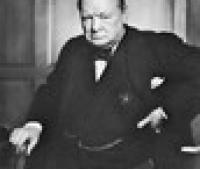Setting Goals for Your Game (and Yourself!)
Chess is a frustrating game. You think that you’re starting to get the hang of it until you come up against a new opponent. They play an opening you’ve never seen before. You start sweating. You hadn’t prepared for this! You lose the game miserably, and decide that you are the world’s worst chess player, doomed to a life of agonising defeats and oh-so-close victories.
But this is not so. One loss does not mean the end of your hostile (yet loving) relationship with chess. You need to take a step back and look at the big picture. As a famous grandmaster once said, you need to re-assess your chess! But before you start studying tactics and cramming openings into your already crowded repertoire, you need to ask yourself a few questions (nothing too personal!), and set yourself a few goals.
By setting yourself goals, you are benefiting yourself (and your chess game) in two ways. Firstly, by setting goals, you have something solid and defined to work towards. You know that you want your rating to be 100 points higher in a given time period, or that you want to win the world championship (hey, I didn’t say they had to be realistic goals!!). Having something to work towards helps greatly with overall motivation to study your game, and stops you from giving up to early.
Secondly, goals are a great way to measure your progress. Imagine them as little road markers on your highway to success. Let’s say you’re overall goal is to have a FIDE rating of 1900 in a few years time. That is your finishing post, and from there it’s easy to work backwards. You can set mini goals for yourself along the way, like improving your rating by 100 points every couple of months (easier said than done, this is just an example). Every time you reach one of your mini-goals, you can tick it off your list. Eventually the only goal left will be the ultimate one, and it will seem a lot easier to reach your ultimate goal using this method than by going all out and finding that you never achieve it. By taking baby steps, you can separate the most complex and challenging goals into manageable phases.
Goals don’t have to be all about rating. Your ultimate goal could be to join a chess club, or to play in your local tournament. Your goal has to reflect YOUR ambitions, and not everybody wants to win the world championship. Some of us are happy just to play for fun. But even if you are a player who enjoys the game as just that, a game, I recommend you take some time out to work some goals out for yourself. You’ll be surprised how much more enjoyable playing chess becomes.





